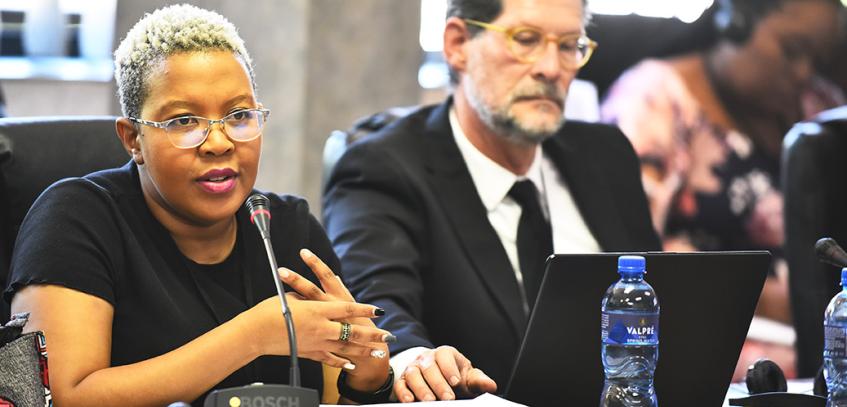Addressing more than twenty-five Parliamentarians during a capacity-building workshop of a joint Committee on Health, Labour and Social Affairs; and Committee on Gender, Youth, Family and People with Disability, in relation to Pan-African Parliament (PAP) Guidelines on harmful practices to witchcraft accusations, Ms Innocentia Mgijima bemoaned the continued attacks of older persons around Africa because of witchcraft allegations.
On Thursday and Friday this week, the permanent committees of PAP held a capacity-building workshop equipping MPs on African Protocols to be signed, signed and ratified. The discussion hinged on the Protocol to the African Charter on Human and People's Rights on the Rights of Older Persons in Africa; the Protocol to the African Charter on Human Rights and People's Rights on the Rights of Persons With Disabilities; the PAP Model Disability Law, and Action Plan on Ending Attacks and Discrimination against People with Albinism.
Ms Mgijima highlighted the need for African countries to quickly sign and ratify these Protocols as most elderly people are accused, attacked, maimed, abandoned, exiled and sometimes killed for witchcraft allegations. "Old age is mostly associated with witchcraft in our African communities, leading to the dehumanization of these older persons. Most of them are attacked by their families or communities, believed to be responsible for bringing misfortunes to the younger generation. As African countries, we need to expedite the signing and ratification of these Protocols so that they become binding, “She said.
Coordinated response, development of a National Action Plan and collaboration with Civic Society Organizations were identified as some among a handful of the PAP Guidelines shared during the workshop. These guidelines are aimed at ensuring an enabling legal environment, without denying the existence of witchcraft, but to allow the enactment of laws that will not take away the Rights of Older Persons. She pointed out that appropriate laws about the possession of body parts, traditional and religious healers be enacted to ensure investigations, prosecutions and appropriate sentences are rendered.
On non-legal and community-based responses, Ms Mgijima emphasized on family involvement and participation in resolving national problems. This was reiterated by another presenter, Mr Lefhoko Kesamang, who is the African Union Acting Head of Social welfare, vulnerable groups and drug control directorate, whose quest was for a redefinition of a family from an Afrocentric view. “The family is the basic and most fundamental unit of society, a dynamic unit engaged in an intertwined process of individual and group development, justifies the need to place the African family at the core of society which needs to be strengthened as part of Africa's development process."
Members of the two committees showed concerns about the pace their individual countries are signing these Protocols and ratifying them to be binding. They were also rattled by the continued intellectualization of issues by the African Union delaying the protocols to reach the individual nations.
-Ends-








